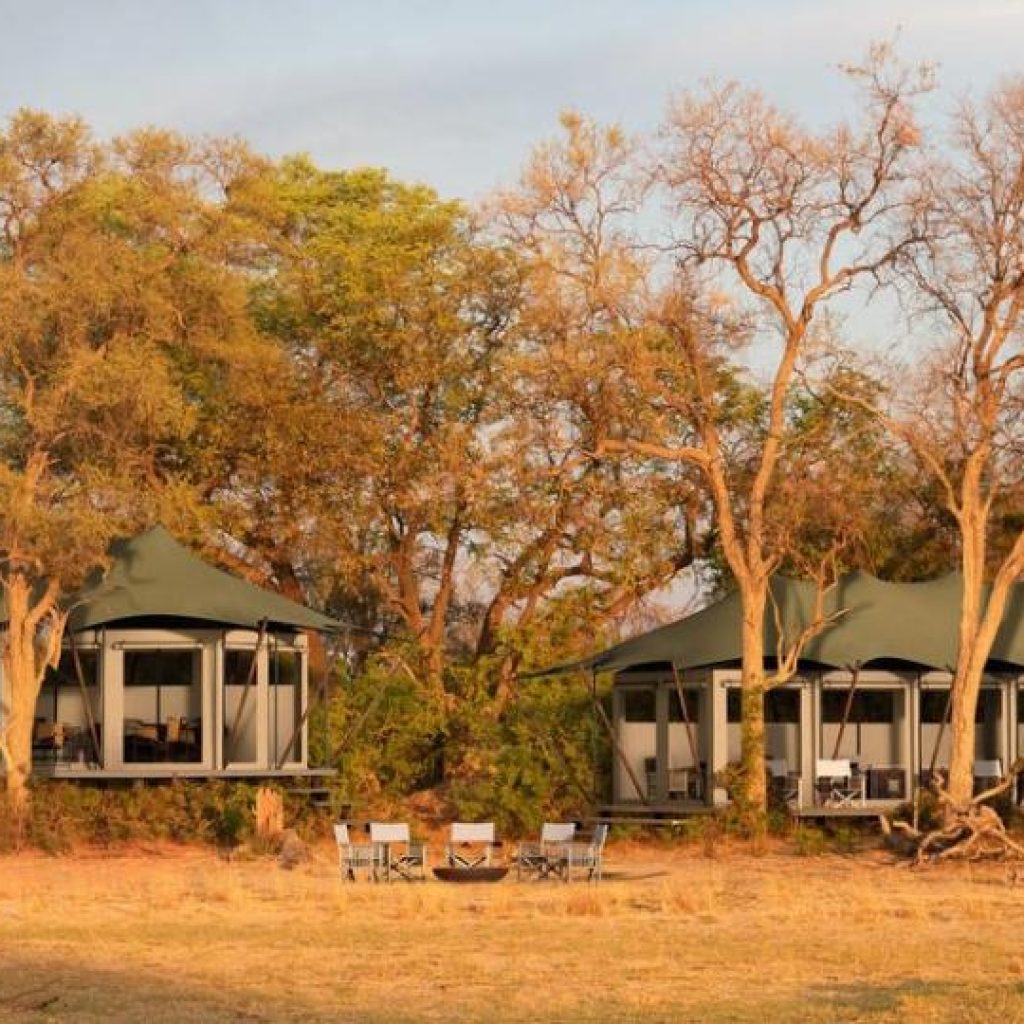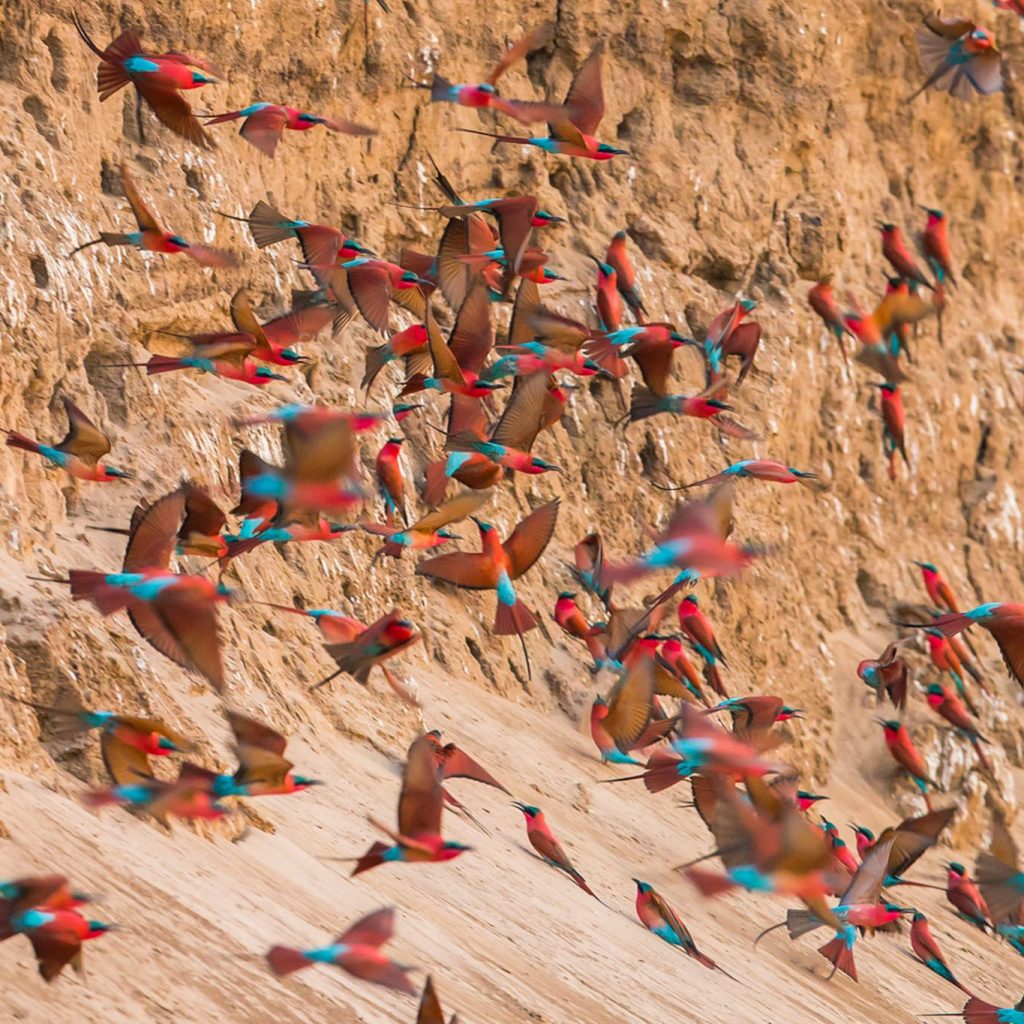
In May, Wild Expeditions Africa will open its newest tented camp, Karangoma, in the secluded northeastern corner of the Okavango Delta.
The camp will features six Meru tents, including a family tent, with five strategically positioned to maximise panoramic views of the floodplain.
Each tent will comprise an open bedroom and lounge with floor-to-ceiling gauze facing the floodplain, and an en-suite bathroom equipped with indoor and outdoor showers. Solar power operates geysers, fans, and lighting, ensuring an eco-friendly footprint. Charging points for electronic devices are available in each tent, along with a choice of twin or king-size beds.
The family tent accommodates two adults and two children (with an option to add a third child), featuring two connected rooms. The adult room mirrors the standard tent layout, while the children’s room offers a more compact space with two single beds. All beds have mosquito netting and solar power operating amenities.
Activities at Karangoma include day and night game drives, walking safaris, boat cruises (subject to water levels), and mokoro excursions. Facilities include a communal dining area, a swimming pool, a restaurant, and a dedicated private vehicle for guests.
Guests fly in from Maun to the Vumbura Airstrip, followed by a low-level 10-minute helicopter flight to the camp.
Karangoma is the result of a partnership between Wild Expeditions Africa and a local elder Olatotse Sarefo and is rooted in Bukakhwe San and Hambukushu culture. The camp will be dedicated to aiding local communities in overseeing interactions between wildlife and livestock. In partnership with the Gudigwa community and NGOs, Karangoma is introducing pioneering cattle-herding techniques and veterinary care. Visitors will have the chance to see the challenges and solutions involved in striking a balance between wildlife conservation and rural livelihoods.
Wild Expeditions is a pioneering collective of owner-run safari camps and expeditions operating in remote parts of Africa since the late 1990s.





About The Author: David DiGregorio
More posts by David DiGregorio